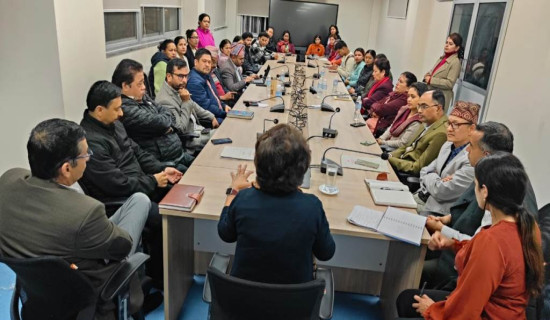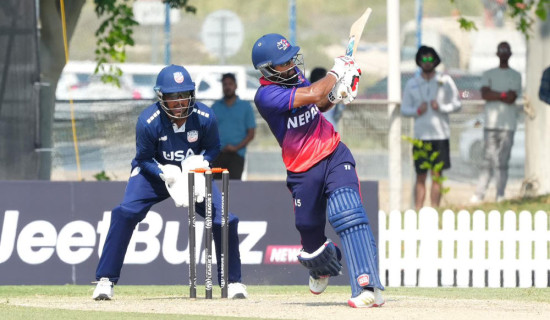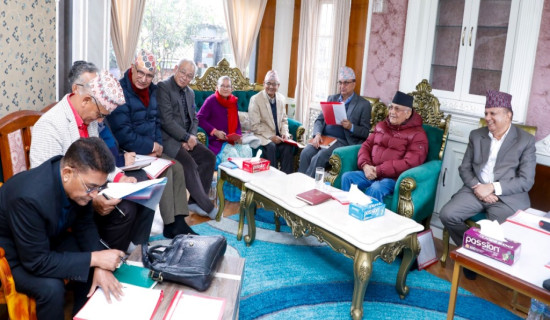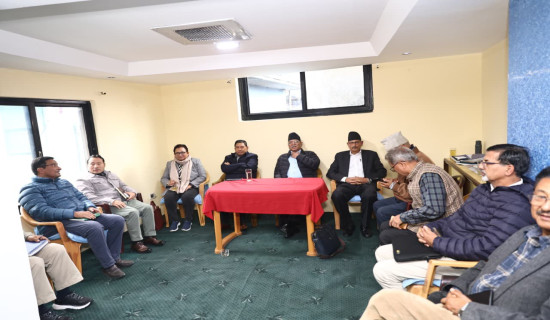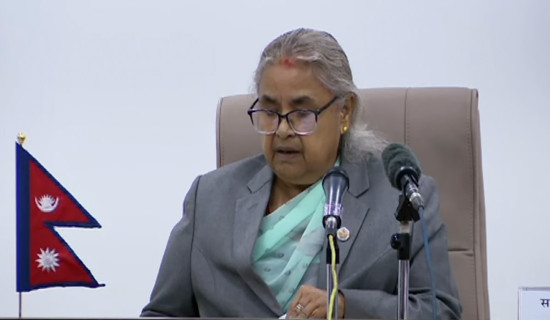- Sunday, 2 November 2025
Ghazal Virtuoso Kamal: A Life Immersed In Literature
Renowned among literature enthusiasts, Ghazal maestro Kamal Prasad Bhandari, whose name resonates deeply in the world of poetic artistry, reveals that his life finds its purpose within the realms of literature. With a devoted commitment to the written word, Kamal has breathed life into his creations, enchanting audiences with the magic of his verses.
Synonymous with the realm of Nepali ghazals, the name 'Kamal Sangharsh,' aka Kamal Prasad Bhandari, emerges prominently. Hailing from Mangalsen Municipality-6 in Achham district of Sudurpaschim, Kamal stands as a multifaceted individual who not only mastered the art of ghazal composition but also clinched the top spot in attendance, poetry, and essay competitions during his school years. His prowess was further validated when he emerged victorious in the inter-school poetry contest in 2016.
Fueled by the guidance and motivation he received from his mentors during that period, Kamal continued to nurture his creative energy through various literary forms. Despite completing his education in Achham, his appetite for literature never waned; rather, it grew stronger. The literary flair that had been evident in him since 2065 B.S. soared to even greater heights. The conviction and fervour to contribute significantly to the literary domain intensified within him. This commitment bore fruit as he started receiving invitations to recite his compositions at diverse literary gatherings. Concurrently, his ghazals found their way into esteemed literary magazines, a testament to his exceptional skill. Such was his eminence that he secured a place as a writer in the ghazal compilation "Kaifiyat," a collaborative anthology featuring the finest ghazal virtuosos nationwide, published in 2070. Subsequently, his engagement in literary pursuits and his trajectory of success continued their upward trajectory, culminating in his victory in the International Ghazal Competition of 2071.
Remaining steadfast in his literary prowess, Kamal triumphantly introduced his anthology 'Sadak' in 2073. The market embraced the series with enthusiasm, leading to the availability of the third edition. His exceptional contribution earned him the Jogmaya Chapagai Ghazal Award of 2074, a distinction bestowed upon works from the same anthology, alongside a collection of over a dozen accolades, including the Mirmire Samman of 2069 and the Shikhar Samman of 2080.
In 2079, Kamal added another milestone to his literary journey by publishing his second ghazal compilation, "Khudi," a feat that sparked invitations for recitals across five cities in India. Furthermore, he undertook the role of editor for the Naukhuwa and Ushakiran semi-annual periodicals.
The shers (verses) of his potent ghazals bear witness to years of unwavering dedication. Kamal's poems and ghazals are distinguished by their fusion of eloquent prose, artful wordplay, and a commanding recitation style. His emergence and tenacious presence in literary circles are captivating. Kamal, who bloomed as a ghazal virtuoso from a tender age, serves not only as an inspiration to many but also as a catalyst in expanding the readership of Nepali ghazals.
His name stands at the forefront of globalising Nepali ghazals through digital platforms. His ghazal collection 'Sadak,' published by Rachnawachan, has gained immense popularity within Nepali ghazal literature. His pivotal role in elevating the ghazal genre to a professional standard cannot be understated. Shikha Books has recently released the third edition of 'Sadak,' a testament to his prowess as a ghazal maestro.
Kamal's ghazals resonate with the voice of the common man, delving into the profound depths of life within each couplet. His poems carry profound meaning, etching a lasting impression in the hearts of readers.
Notably, he champions the use of regionalism in Nepali ghazals, and many enthusiasts appreciate his commitment to employing the Nepali language, the very tongue of his birthplace. He actively engages in the campaign to nurture and enrich language, art, literature, and culture through the medium of ghazals.
In recent times, there has been a surge in the utilisation of the distinct dialect of Far West Karnali in Nepali cinema, literature, songs, and music. Amidst this rise of regionalism in diverse artistic forms, Kamal staunchly advocates for preserving the essence of the language and culture. His firm belief is that even though works that dilute the original essence may gain temporary acclaim, their longevity remains uncertain. Hence, his creative endeavors are driven by a fervent desire to promote the authentic facets of his language. Kamal, the luminary in the realm of ghazal composition, revered by aficionados of literature, attests that his existence is inseparably intertwined with the written word. The fervour of this youthful and enthusiastic writer, Kamal, continues to illuminate the literary landscape, with another splendid ghazal work poised for publication.
(KC is a poet and journalist from Sudurpaschim.)



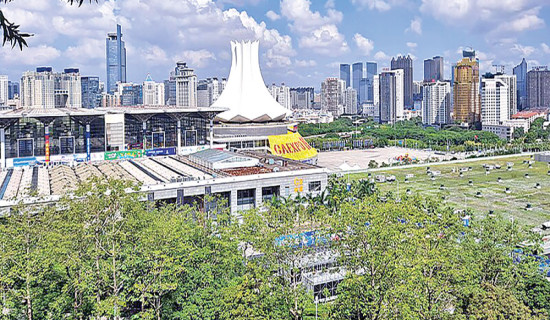
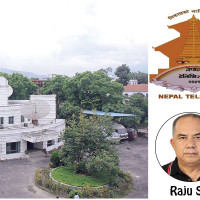

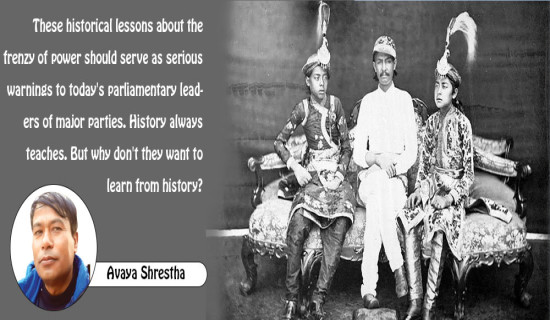


-original-thumb.jpg)

